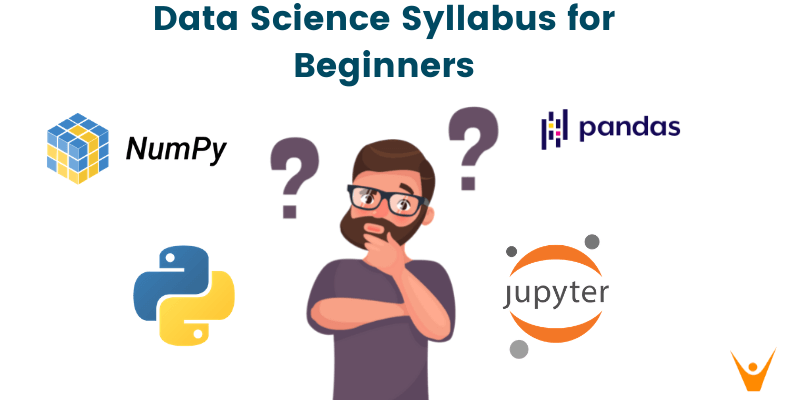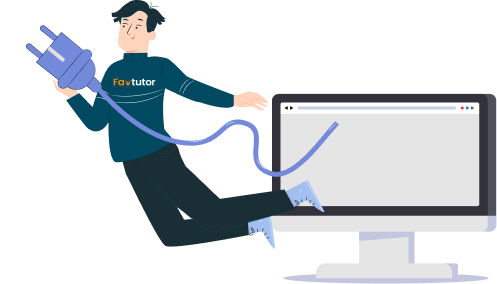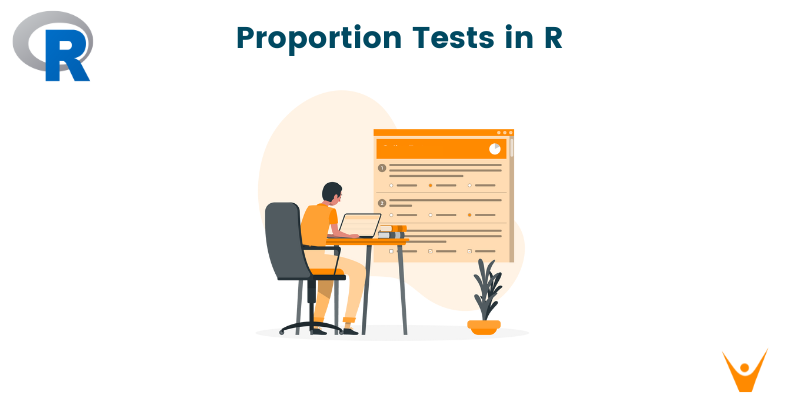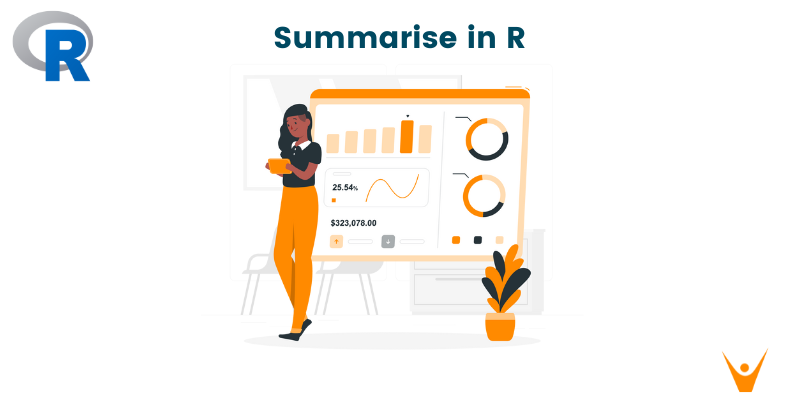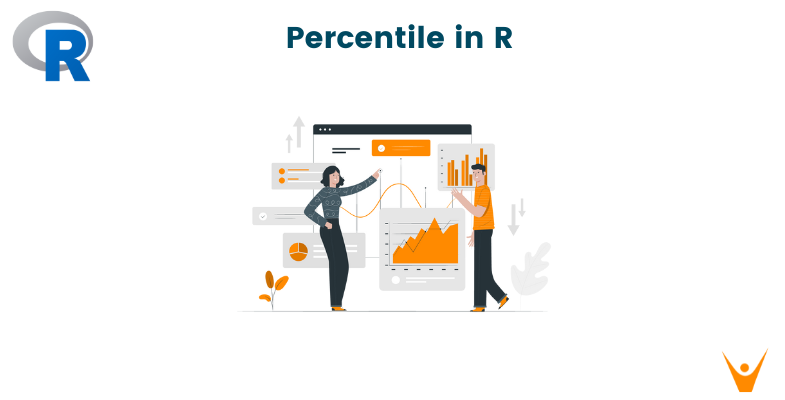With the emerging technological world, data science has been the best technology to pursue for every student and professional. But while beginning to work with data science the first question that arises in the mind is where to begin with? Data science is a very vast topic to cover and hence, it always confuses beginners and even the professional to have a roadmap for becoming the ultimate expert. Therefore, below we have mentioned what is data science and its syllabus along with a detailed explanation of every topic to become a data science expert. Also, we will display some frequently asked questions by every beginner for becoming a data scientist and clear their doubts. So, let's get started!
What is Data Science and Its Syllabus?
With the increasing fuss of data science all over the IT domain, the first question for everyone is what is data science? Well, data science is the combination of programming principles, algorithms, and mainly statistics to find out various patterns and relationships that exist between the raw data. With the increasing age of big data all over the world, the demand and requirement of data science are increasing day by day in the IT field. There no organization that does not have an expert data scientist that helps it to rise in the competitive world of technology.
Talking about the syllabus of data science then it consists of python essentials, database management, statistics, machine learning, and some concepts of deep learning. With this many fields including the study of data science, it is possible to start learning from any topic. But it is most recommended to learn with the perfect planning, perfect sequence and take help from the online data science tutors which help you clear your concepts for becoming a better data scientist than others.
What are the topics in Data Science?
Let us see the different fields of the data science syllabus separately and briefly.
1. Python Essentials
As we all know that we cannot become experts in the field of data science without dealing with coding programs. Therefore, before becoming an expert data scientist we must know the basic concepts of the Python language.
It is recommended to learn Python language in comparison to another such programming language because Python is an open-source interpreted language with very easy syntax and has lots of libraries to work with compared to others. It consists of data types like List, Tuple, Sets, and Dictionary all with their functionality of storing the data. Python language also supports the string data type with lots of string manipulation functions which help to perform a different operation on strings. Condition Statements and loops are used to fetch the data from the data types and iterate the operations that are to be performed on them. The most important advantage of learning python language before pursuing data science is that it consists of a large collection of libraries including Numpy, Pandas, and Matplotlib which are specially used for performing different operations on data collected. Numpy Library is used for performing arithmetic and mathematical operations while Pandas library is used for analyzing the group of data altogether by creating a different dataset from the collected raw data. Also, it is observed that it becomes easy to find the relationship between the data using the graphical and visual representation. Therefore, in such cases, the Matplotlib library comes handy. Apart from this, working with files and many such other concepts are easy to operate while working with python and therefore, it is most recommended to learn and understand python before starting with the data science concepts.
2. Database Management System(SQL)
SQL is the database language that is specially designed for the retrieval and management of data from the database. SQL helps us to access and manipulate the database. First, it is recommended to start with the basics of SQL like executing and retrieving the data from the database. We have to learn how to insert, update, delete and create the records in the database and also different permission, procedures, and views of the database management system.
After we are clear with all the basic SQL concepts, we can jump to advance topics like functions, hierarchical queries, and query optimization. Normalization is the most important topic to learn while studying SQL. Normalization is an approach to decomposing the tables by eliminating the data redundancy and anomalies. And lastly, the entity-relationship diagram is added to the syllabus to study for plotting the relationship between different data entries. As a part of advanced SQL concepts, SQLite modules are learned which help users to connect the database with the cursor objects in python. As you finish learning all these SQL concepts with proper understanding, you are good to go on learning further topics for becoming a data science expert.
3. Applied Python
As we studied above, learning python language is most important to pursue data science. And therefore, after studying the basic python programming it is recommended to move towards advance and applied python programming. The applied python programming consists of working with APIs. API describes everything that any programmer needs to know about the code for knowing how to use it. As data science is all about working with the data, it is important to learn web scraping(data extraction) from the website. For this, we can use the Python Library named BeautifulSoup. BeautifulSoup helps to extract the structured data from the website in HTML or XML format. Apart from this, there are many such topics to cover while learning applied python but if you are clear with the above topics then you are on the path of becoming a better data scientist.
4. Statistics and Mathematics
As we have studied till now that data science is all about working with digits and data and for that it is most important to learn statistics at its best. The measure of central tendency and measure of variability including descriptive statistic is the first step of learning statistics and mathematics. After learning descriptive statistics we will switch to inferential statistics consisting of theorem and distributions necessary to sort and understand the gathered data. Some of them are Binomial theorem, Tests, Normal Distributions, T- distributions, and many more. The study of data science involves the application of testing at maximum. This is because the data obtained is to be tested at some level and the predictions are made accordingly and for this purpose, hypothesis testing is used. The main purpose of entire statistics is to test a hypothesis. Therefore, using this we test the results of the data and see if we can predict anything from it. And lastly, after applying all the theories and tests of statistics it is also important to learn the data cleaning processes. Here cleaning refers to removing the useless data from the group of data. Therefore, after applying all the necessary operations for drawing the result from the dataset, the process of data cleaning turns out to help delete or modify the irrelevant, duplicate, or incomplete data and creating more space and a better dataset.
Apart from these concepts, there are many other topics to cover the vast knowledge of statistics for your data science syllabus but the above mentioned are most necessary and recommended to know while moving forward with machine learning and data science problems.
5. Machine Learning
Machine Learning is the most important and most time-taking concept to learn in comparison to others while pursuing data science. Studying machine learning is more difficult as lots of topics are involved in it. Machine Learning involves vectors and matrices which helps us to work with datasets easily and also it is helpful to study neural networks which is part of data science. Linear Regression and Logistic Regression are mostly used for predicting the categorical dependency and solving the regression problem. Therefore, these regression methods help to speed up the process of predictions from the datasets with very little effort. The experts recommend learning Naive Bayes which helps to classify the dataset using the Bayes theorem. Also, we can use the K-nearest neighbours algorithm for classification and regression purposes along with the Naive Bayes algorithm. For making the decisions while predicting the result from all the possible consequences and random outcomes we can use the concept of the decision tree. Broadly machine learning is divided into two categories as supervised and unsupervised learning. The support vector machine is a supervised learning model that uses the classification algorithm to classify the group of data in different classification problems. While working with data it becomes difficult to create different models and extract the result out of them. For this purpose, the concept of boosting algorithm is used to combine the multiple models in different machine learning perspectives. Many clustering methods are most useful while working with a large amount of data for classifying the data in a different cluster. The cluster is made by bringing together similar kinds of data. For example, hierarchical clustering, model-based clustering, or supervised clustering.
Just like statistics and mathematics, learning just the above topics does not cover enough for becoming a data science expert but if you well understand the above topics then it is sure that you are on the path of becoming a better data scientist. Before becoming professional in data science we need to become professional in machine learning and hence above topics will help you with the same. And the best practice will be to practising the above concepts with some data collection and applying algorithms.
6. Deep Learning
The last and final step to becoming a data science expert is to learn deep learning. Studying deep learning starts with learning neural networks. A neural network is a method to find solutions for image recognition and speech recognition. This helps in finding the connection between the raw data and calculate the target output. A convolution neural network is used for analyzing input images as a neural network algorithm. Besides this, we have a recurrent neural network(RNN) which is also the class of neural networks to find the sequential output from the data. Here, the output from the previous step is the input of the current step. Lastly, to complete deep learning, we will go through TensorFlow which is an open-source platform for machine learning. It helps in studying and understanding the machine learning models which are most used while working with data.
Apart from the above topic, there are many other topics like Data Visualization and Data Wrangling. It involves working with raw data and make it ready for further analysis. Visualization is the graphical representation of data in form of diagrams, charts, or tables. But if you are clear with all the above topics with well understanding and better practice, then you can consider yourself as a better data scientist.
Frequently Asked Question(FAQs)
There are so many questions for every beginner who is about to start with Data Science Syllabus. Let us clear some of the points below:
What are the eligibility criteria to start with data science?
To become data science experts, it is necessary to have some IT background to get clear with prerequisite topics and have a basic understanding of them. The only purpose of having an IT background is because to have proper grasping power and better knowledge for starting with the data science syllabus and therefore, this does not mean the Non-IT student cannot start with Data Science.
Is coding required for learning data science?
Coding is not the most important thing required for learning data science because mostly data science involves working with data. But just to clear the knowledge of python which is the basic requirement for becoming data science it is recommended to have basic knowledge and understanding of coding programs.
How long does it take to learn data science professionally?
This depends on the person because everyone has a different learning capacity. But if the person has a good understanding of technical terms, it would take around 18-20 weeks for clearing every concept and become a data science expert.
What is the platform where we can learn these topics?
There are many platforms on the internet where you can learn the topics involved in the data science syllabus. Also, there are some most recommended books and sources by a successful data scientist which can be the best method to learn. Apart from this, you can always connect to us and our tutors will always be available to clear your concepts and doubts.
Conclusion
Therefore, in this article, we have studied what is data science and its demand in today's emerging world. Also, we referred to the ultimate syllabus to cover for becoming the data science expert and topics to become a professional data scientist. At last, we answered some of the basic FAQs that come from every student while beginning with the data science syllabus. You can refer to all the above topics and start learning for making your bright future in the field of data science and if you have any doubt contact us and our tutors will happily help you to rise a step on the ladder of becoming a professional data scientist.


